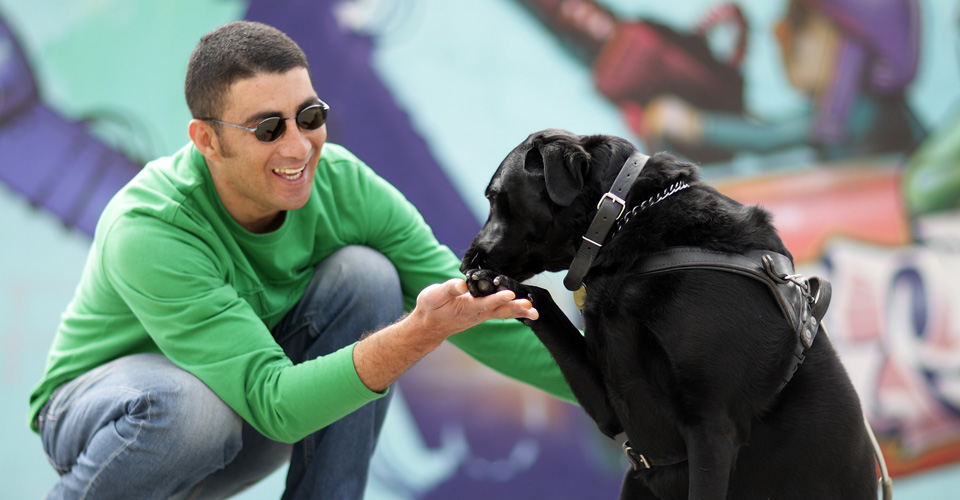Before we help you nibble on the bones of the answers, we thought we’d share something that speaks to the marrow of the South African Guide-Dogs Association for the Blind.
The SA Guide-Dogs Association for the Blind... isn’t just for the blind! They provide independence, mobility, and companionship through four core services. Their mission is to enhance the lives of visually and physically impaired people and children with autism. Their core services include:
- Guide Dogs
- Service Dogs
- Autism Support Dogs
- Orientation and Mobility
10 enlightening answers to your most burning questions:
1. How long does it take to train an assistance dog?
Training is approximately 6 to 9 months, but the GDA is responsible for the puppies from birth. Training commences at around 12 months, so it takes an average of 18 to 24 months from birth to graduation.
2. How much does it cost to train an assistance dog?
Hundreds of thousands of Rands! The GDA relies on generous donations of sponsorship packages starting from R5,000 to make this possible.
3. Does the GDA breed its own dogs?
Yes, they breed Labrador Retrievers, Golden Retrievers, cross Labrador-Golden Retrievers, and German Shepherd Dogs.
4. How much does an assistance dog cost?
You pay R205, which includes your trained assistance dog, training, accommodation, and equipment.
5. Does one have to be completely blind to qualify for a guide dog?
No, you may apply if you have residual vision.
6. Who is responsible for the assistance dog’s care?
You need to be able to afford to care for your assistance dog. You are responsible for the feeding and routine veterinary care of your dog.
7. Who owns the assistance dog?
If the assistance dog is placed with you, then you do. The GDA will visit annually for the life of your dog and is always available to offer advice and assistance.
8. When should an assistance dog retire?
Usually after 8 to 10 years, depending on the health of the assistance dog and the normal aging process.
9. What happens to an assistance dog when it retires?
The dog will stay with you. The GDA will find a loving home for the retired dog if this is not possible.
10. How is an assistance dog thanked for doing a good job?
Assistance dogs enjoy affection. Physical touch is gratifying, as is vocal praise. Assistance dogs often receive a small treat after completing requested tasks. It may be good to keep that tradition going.



